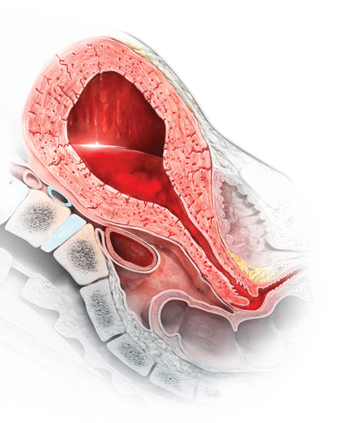All about Beautiful Journey Reproductive Counseling Center
Table of ContentsThe Single Strategy To Use For Beautiful Journey Reproductive Counseling CenterMore About Beautiful Journey Reproductive Counseling CenterThe 10-Second Trick For Beautiful Journey Reproductive Counseling CenterBeautiful Journey Reproductive Counseling Center - The FactsA Biased View of Beautiful Journey Reproductive Counseling CenterRumored Buzz on Beautiful Journey Reproductive Counseling Center

Functioning with psychological health professionals is an excellent method to learn about postpartum clinical depression and exactly how to recover. Treatment is a personal and vital method to treat postpartum anxiety.

The smart Trick of Beautiful Journey Reproductive Counseling Center That Nobody is Talking About
There have actually not been definitive studies released that looked particularly at folate or various other B vitamins in the therapy of postpartum depression. Think about advising to women who are postpartum to continue their prenatal vitamin or take a B-100 complex with regarding 1 mg (or 1,000 mcg) of folic acid, or folate.
Adjustment of vitamin D deficiency might play a considerable duty in the recovery from postpartum anxiety. Mommies having problem with anxiety should have their 25-OH vitamin D level evaluated. Several females locate that they need at the very least 2,000-3,000 IUs of cholecalciferol, which is vitamin D3 (a form that is really easily absorbed) throughout the winter season.
In the summer season, much less oral vitamin D may be needed, depending on the latitude where the mommy lives. reproductive therapist.
The Buzz on Beautiful Journey Reproductive Counseling Center

Anticoagulation may be made use of, and it must be noted that there exists no global guideline or referral for anticoagulation therapy in septic pelvic apoplexy. First bolus of 60 units/kg (4000 units maximum) complied with by 12 units/kg/h (optimum of 1000 units/h) is suggested. The aPTT is kept track of for 2-3 times the typical worth.
Postpartum clinical depression (PPD) is a complex mix of physical, emotional, and behavioral adjustments that take place in some females after delivering. According to the DSM-5, a hand-operated utilized to identify mental problems, PPD is a kind of major anxiety that starts within 4 weeks after delivery. The medical diagnosis of postpartum anxiety is based not only on the size of time in between distribution and onset but on the intensity of the clinical depression.
The term defines a variety of physical and emotional changes that many new mothers experience. The actual link in between this decline and anxiety is still not clear.
9 Simple Techniques For Beautiful Journey Reproductive Counseling Center
Commonly, joining a support system of new mamas or talking with various other mommies aids. can take place a couple of days or perhaps months after giving birth. PPD can take place after the birth of any kid, not simply the first youngster. You can have feelings similar to the baby blues-- sadness, misery, stress and anxiety, crankiness-- however you feel them far more strongly.
When your ability to feature is influenced, you need to see a healthcare carrier, such as your OB/GYN or medical care physician. This doctor can screen you for clinical depression symptoms and develop a therapy strategy. If you do not obtain treatment for PPD, signs can worsen. While PPD is a serious condition, it visit site can be treated with drug and therapy.
This disease can happen swiftly, typically within the initial 3 months after childbirth. Women can lose touch with fact, having acoustic hallucinations (hearing points that aren't really occurring, like a person talking) and misconceptions (strongly believing things that are clearly illogical). Visual hallucinations (seeing things that aren't there) are much less common.
Women who have postpartum psychosis requirement therapy as soon as possible and virtually always require medication. In some cases women are taken into the medical facility since they are at risk for hurting themselves or somebody else. Postpartum clinical depression is discriminated, relying on the sort of signs and exactly how serious they are. Treatment alternatives consist of anti-anxiety or antidepressant medicines, psychotherapy, and participation in a support group for psychological assistance and education and learning.
The 8-Minute Rule for Beautiful Journey Reproductive Counseling Center
Kids of moms with postpartum depression are more probable to have troubles with resting and consuming, crying even more than normal, and delays in language growth. If you have a history of anxiety, inform your doctor as quickly as you locate out you're expectant, or if you're preparing to become pregnant.
Often, signing up with a support system of new mamas or chatting with various other mommies assists. can take place a few days or also months after giving birth. PPD can happen after the birth of any type of child, not simply the very first child. You can have sensations comparable to the baby blues-- sadness, anguish, anxiety, crankiness-- but you feel them a lot more strongly.
When your capability to feature is affected, you require to see a health and wellness treatment carrier, such as your OB/GYN or medical care doctor. This medical professional can evaluate you for clinical depression signs and symptoms and think of a therapy strategy. If you do not get therapy for PPD, signs and symptoms can become worse. While PPD is a significant condition, it can be treated with medication and counseling.
This disease can happen promptly, frequently within the first 3 months after childbirth. Females can lose touch with reality, having acoustic hallucinations (hearing things that aren't actually taking place, like a person chatting) and delusions (highly thinking things that are clearly illogical). Aesthetic hallucinations (seeing things that aren't there) are less common.
Beautiful Journey Reproductive Counseling Center Can Be Fun For Anyone
Ladies that have postpartum psychosis need therapy today and usually need medicine. Sometimes ladies are placed right into the healthcare facility due to the fact that they are at threat for hurting themselves or another person. Postpartum clinical depression is discriminated, relying on the sort of symptoms and exactly how extreme they are. Therapy choices include anti-anxiety or antidepressant medications, psychotherapy, and involvement in a support system for psychological assistance and education.
Youngsters of moms with postpartum clinical depression are much more most likely to have troubles with resting and eating, weeping even more than typical, and hold-ups in language advancement (postpartum therapy). If you have a history of depression - https://ameblo.jp/beaj0urepcc/entry-12847214740.html, tell your physician as quickly as you figure out you're expecting, or if you're preparing to become pregnant